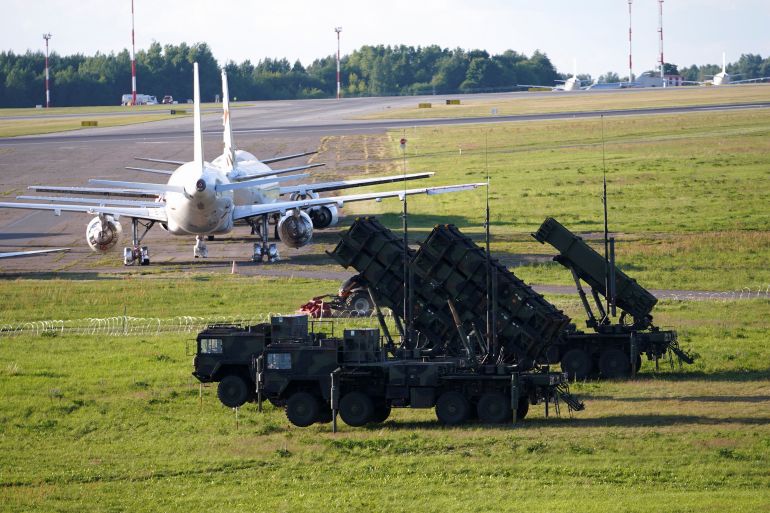Lithuania shuts airports, Belarus border crossings after balloon sightings
Move to close Vilnius, Kaunas airports and border comes after helium balloons drifted into the country’s territory.

By Al Jazeera and Reuters
Published On 24 Oct 202524 Oct 2025
Save
NATO member Lithuania has closed its two biggest airports and shut crossings on its border with Belarus after helium weather balloons drifted into its territory, the third such incident in the Baltic nation this month.
European aviation has repeatedly been thrown into chaos in recent weeks by drone sightings and other air incursions, including at airports in Copenhagen, Munich and the Baltic region.
Recommended Stories
list of 3 itemsend of list
The Vilnius and Kaunas airports were closed on Friday for safety reasons until 2am (23:00 GMT), while the Belarus border crossings will remain shut until midday on Sunday, authorities said.
Lithuania has said balloons are sent by smugglers transporting contraband cigarettes, but it also blames Belarus President Alexander Lukashenko, a close ally of Russian President Vladimir Putin, for not stopping the practice.
“The National Security Commission will meet next week to assess … what can be done short-term that would be painful to the smugglers and to Lukashenko’s regime, which allows them to thrive,” Lithuania’s Prime Minister Inga Ruginiene said in a statement.
Lithuania’s National Crisis Management Centre said “tens of balloons” had been detected by radar on Friday.
Vilnius airport also closed on Tuesday of this week and on October 5, when smuggler balloons entered the capital city’s airspace, authorities said.
The incident comes after two Russian military aircraft briefly entered Lithuania’s airspace in what appeared to be a new provocation from Moscow.
Lithuania’s armed forces said in a statement that the two aircraft may have been conducting refuelling exercises in the neighbouring Russian exclave of Kaliningrad when they flew 700 metres (0.43 miles) into the country at 6pm local time (15:00 GMT) on Thursday.
Advertisement
“This is a blatant breach of international law and territorial integrity of Lithuania,” Lithuanian President Gitanas Nauseda said on X in response to that incursion, adding that his country would summon Russian embassy representatives to protest against reckless and dangerous behaviour.
Russia’s Ministry of Defence, however, denied the incursion had taken place.
It said the flights were conducted “in strict compliance” with rules and “did not deviate from their route and did not violate the borders of other states”.
Russian aircraft and drones have reportedly also violated airspace in Estonia and Poland in recent weeks.
The events have heightened anxiety that Russia’s Putin might be testing NATO’s defensive reflexes.

